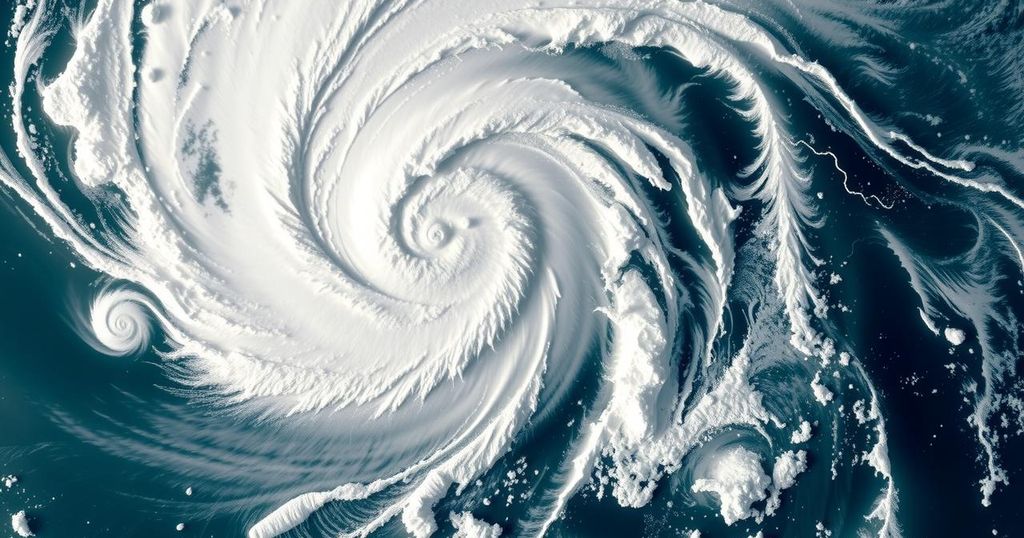Impact of Tropical Cyclone Chido on Mozambique: A Comprehensive Overview
Tropical Cyclone Chido struck Mozambique on December 15, 2023, impacting millions. The cyclone, categorized as a category 4 storm, caused destructive winds of up to 200 km/h and heavy rainfall, particularly in Cabo Delgado and Nampula provinces. Preliminary estimates indicate that around 2.5 million people may be affected, with Pemba City and various districts in both provinces requiring immediate emergency response.
Tropical Cyclone Chido made landfall in the early hours of December 15, 2023, in southern Cabo Delgado Province, near the border with Nampula Province, and close to the south of Pemba. Classified as a very intense Tropical Cyclone, it reached category 4 status with sustained winds of 200 km/h and gusts peaking at 250 km/h. Damaging winds and substantial rainfall commenced shortly after 3 am local time, with forecasts predicting up to 250 mm of rain within a 24-hour period and gusts potentially exceeding 260 km/h in various affected districts.
The storm’s path is expected to result in extensive damage, especially given the severity of wind and rain. Areas such as Mecu, Metuge, Ancuabe, Meluco, Ilha de Ibo, Quissanga, Pemba City in Cabo Delgado, and Memba, Nacala, and Nampula City in Nampula are particularly vulnerable to flooding and landslides due to the intense rain. Reports indicate that communication networks in Pemba are currently down, although electricity remains functional in some locations.
A preliminary assessment suggests that approximately 2.5 million individuals could be impacted by Cyclone Chido, with the hardest-hit areas including Cabo Delgado Province, where approximately 1.5 million people reside in the districts of Ancuabe, Balama, Chiure, Mecu, Metuge, Meluco, Ibo Island, Quissanga, Montepuez, and Pemba City. In Nampula Province, the districts of Erati, Lalaua, Malema, Mecuburi, Memba, and Nacaroa, along with Nampula City, have around 730,000 residents potentially affected. Lastly, Niassa Province, including Cuamba, Madimba, Marrupa, Maua, Mecanhelas, Metarica, and Nipepe, houses an additional 215,000 vulnerable individuals.
Tropical Cyclone Chido represents a significant meteorological event that has had a powerful impact on regions of Mozambique, particularly Cabo Delgado and Nampula provinces. As a natural disaster characterized by extreme winds and precipitation, cyclones pose considerable threats to infrastructure, humanitarian safety, and public health. With a forecasted trajectory that includes heavy rainfall and the potential for storm surges, relief organizations are preparing for emergency response measures to mitigate against the cyclone’s widespread effects.
In conclusion, Tropical Cyclone Chido’s landfall has led to significant hazards, affecting millions in Mozambique’s Cabo Delgado and Nampula provinces. The storm’s high winds and intense rainfall have resulted in severe damage and disruptions, highlighting the urgency for response strategies. Continuous assessments are needed to determine the full extent of the damage and to guide future relief efforts for those impacted.
Original Source: reliefweb.int




Post Comment